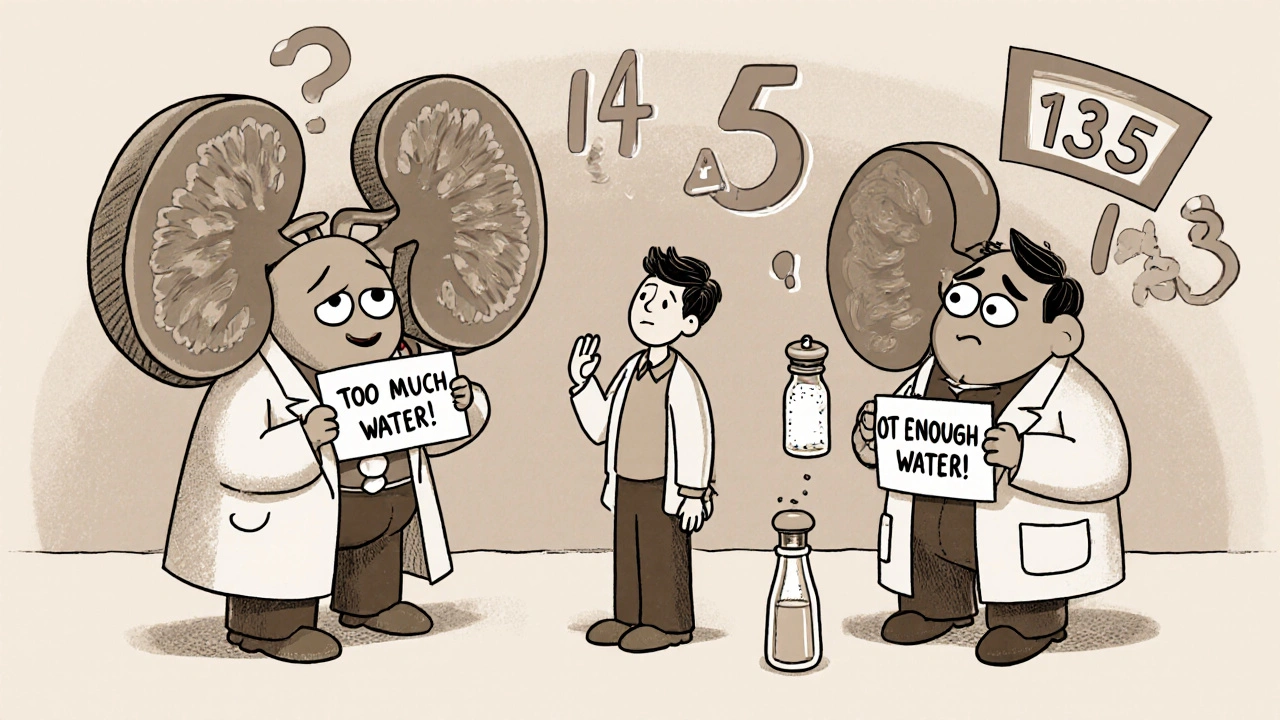Hyponatremia: Causes, Risks, and Medications That Can Trigger It
When your blood sodium drops too low, you have hyponatremia, a condition where sodium levels in the blood fall below 135 mEq/L, disrupting fluid balance and nerve function. Also known as low sodium, it’s not just a lab number—it can cause confusion, seizures, or even coma if ignored. Sodium isn’t just table salt. It’s a key electrolyte that controls how water moves in and out of your cells. When levels dip, your brain cells swell. That’s why symptoms like nausea, headaches, and dizziness often show up first.
Many common medications can quietly cause hyponatremia, a dangerous drop in blood sodium levels that affects fluid regulation and brain function. Diuretics like hydrochlorothiazide, antidepressants like SSRIs, and pain meds like tramadol are big culprits. Even some heart drugs and seizure medications can throw your sodium balance off. If you’re on any of these and start feeling off—especially after starting a new drug—don’t brush it off. Your body might be signaling an electrolyte problem.
It’s not just about pills. Overhydration, especially during endurance sports, can dilute sodium. Older adults are at higher risk because kidneys don’t regulate fluids as well. And conditions like heart failure, liver disease, or kidney issues often come with electrolyte imbalance, a disruption in the body’s minerals like sodium, potassium, and chloride that control nerve and muscle function. These aren’t rare edge cases—they’re everyday concerns for people managing chronic illness or taking multiple meds.
You won’t always feel it coming. Mild hyponatremia might just make you tired or foggy. But if you’re confused, vomiting, or having trouble walking, it’s urgent. Doctors check sodium with a simple blood test. Treatment isn’t one-size-fits-all—sometimes it’s fluids, sometimes it’s holding meds, sometimes it’s hospital care. The key is catching it early.
The posts below cover real-world cases and connections you won’t find in generic health sites. You’ll see how hyponatremia links to drugs like metronidazole, how it’s mistaken for other conditions, and how lifestyle and medication timing can make it worse—or better. No fluff. Just clear, practical info from people who’ve been there.
Hyponatremia and Hypernatremia in Kidney Disease: What You Need to Know
Hyponatremia and hypernatremia are common, dangerous complications in kidney disease. Learn how fluid balance, diet, and medications affect sodium levels-and what you can do to stay safe.






